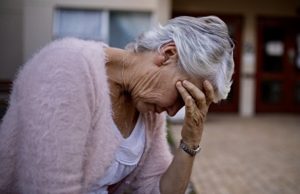The Vancouver Sun today reported that one in ten seniors will suffer from Elder Financial abuse, often at the hands of their closest loved ones.
“While a B.C. man was in hospital having brain surgery, his daughter was busy taking over his bank accounts and his home, thinking he wouldn’t make it.
When he got out, he had to fight to get his assets back, said Richmond MP and minister of state for seniors Alice Wong. In another case, a woman in Ontario was moved to a garage with no heat while a live-in caregiver and her family took over her house and wallet.
“These are sad stories,” Wong said to a small group of people at Multicultural Helping House Society in Vancouver Saturday. “We are facing a growing population of seniors. As that number increases so does the potential for elder abuse.”
Wong was speaking ahead of World Elder Abuse Awareness Day on Sunday, which aims to help people become more aware of what is considered a “hidden issue” that can take many forms, including physical, emotional and financial abuse. Wong announced more than $24,500 in New Horizons for Seniors Program funding to support its project entitled Breaking the Silence of Abuses: Empowering Elders.
Seniors will play a leading role in the project by helping to produce video recordings of testimonials from elderly people who have experienced abuse. They will also compile resources on elder abuse, including financial abuse, for use in awareness sessions that will encourage peer sharing, mentoring and networking.
Wong estimates four to 10 per cent of seniors face some sort of abuse, but others suggest the number is way higher. The problem is that many victims of elder abuse don’t report it. Some may be ashamed that they were bilked by scammers, while others don’t want to get their children in trouble. Some may not even realize what constitutes abuse or neglect.
In many cases, it may be a family member who continually borrows money but does not repay it, a caregiver over-medicating a senior in their care, or a contractor who over-charges for home repairs or maintenance.
“It’s been there for a long time and it’s been hidden,” said Sherry Baker, executive director of the B.C. Association of Community Response Networks. “It’s like domestic violence. What we’re doing right now is raising awareness and helping the communities to realize they have a role in this … not necessarily intervening but at least slowing it down.”
Baker noted there is no way to measure the problem because nobody has kept track or documented the cases, although this has started to be done by police and health authorities. She said while communities aren’t asked to intervene in abuse cases, neighbours who notice something amiss can help just by inviting a senior over for a cup of tea and a chat.
“It’s coming more to the fore because organizations and the government are realizing this is a health issue, a financial issue and sometimes a criminal issue,” she said. “It’s a societal issue that needs to be dealt with.”
Wong said the federal government is working on ways to penalize those who abuse seniors but the hands of police are tied because seniors are not willing to come forward.
The federal government is also working on a plan to work with banks to alert the authorities if they notice anomalies with a senior’s bank account that could be consistent with financial abuse, she added, but this will take some time because it affects privacy laws.
“Financial abuses are growing faster than physical abuses but neither is acceptable,” she said.
The provincial government, meanwhile, earlier this month launched a month-long elder abuse awareness social media campaign with the goal of educating all British Columbians on how to recognize and how to respond and take action against elder abuse and ageism. It also developed a provincial elder abuse prevention strategy in March last year that is supported by nearly $1 million in funding, and provides a foundation for better collaboration and integration to improve prevention, recognition and response services around the province.”





